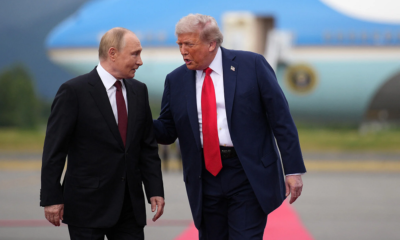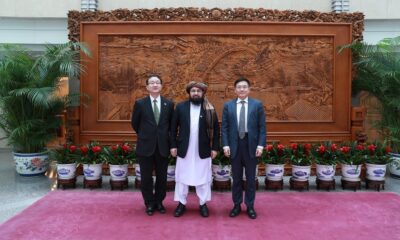Latest News
UN urgently needs cash in Afghanistan, but struggles for solution
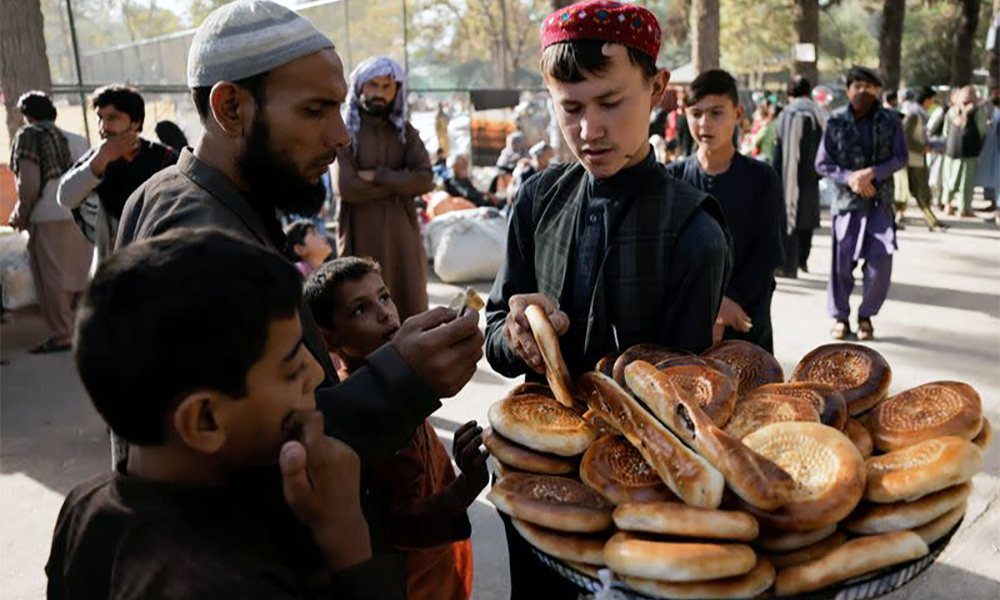
The United Nations cannot get enough cash into Afghanistan to deliver humanitarian aid to millions of people on the brink of starvation and is struggling to develop options to help stabilize the collapsing economy, U.N. officials said.
Ultimately political solutions are needed, a senior U.N. official told Reuters on condition of anonymity, an apparent reference to sanctions relief and for governments and institutions to free up billions of dollars of Afghan assets held overseas.
In the meantime U.N. agencies are scrambling to find ways to get large amounts of U.S. dollars into Afghanistan to combat a liquidity crisis that has taken hold since the Islamic Emirate of Afghanistan (IEA) ousted the Western-backed government in August.
The U.N. official shared with Reuters some of the options being suggested.
The delivery of U.S. dollars to Afghanistan has stopped since the IEA seized power and if countries or international financial institutions don’t step up then the United Nations might have to fill the gap, said the official.
One suggested option is using Afghanistan International Bank, which could bring in and store money, but there are issues with insurance, the U.N. official said.
The United Nations is also aware that no one option will work and several avenues to get enough cash into Afghanistan are needed, the official said.
U.N. Secretary-General Antonio Guterres has called for the International Monetary Fund to agree on waivers or mechanisms to get money into Afghanistan. The IMF has blocked the IEA from accessing some $440 million in new emergency reserves.
Much of the Afghan central bank’s $10 billion in overseas assets have been frozen as well, most of it in the United States. The U.S. Treasury has said there are no plans to release the money.
“We need to work together to make the economy breathe again and to help people survive,” Guterres said on Wednesday. “Injecting liquidity into the Afghan economy can be done without violating international laws or compromising principles.”
The United Nations has repeatedly warned that Afghanistan’s economy is on the brink of collapse and would likely further fuel a refugee crisis.
When asked about U.N. efforts to get cash into Afghanistan, Mary-Ellen McGroarty, head of the World Food Programme in Afghanistan, told reporters on Tuesday: “The U.N. collective is looking at what potential solutions we could have, but flying in money to the country is not on the table yet.”
“What we are using at the moment is the limited liquidity that is in the country,” she said. “But the longer this goes on … we’re finding it’s becoming more and more difficult.”
Some 8.7 million people are “one step away from starvation,” said McGroarty, adding: “There is a tsunami of destitution, incredible suffering and hunger spiraling out of control.”
The IEA is facing growing international pressure for an inclusive and representative Afghan government and to uphold human rights, particularly those of women and girls in return for international recognition and freeing up aid and reserves.
Donors and institutions are also seeking to avoid running afoul of U.N. and unilateral sanctions on the IEA.
The United Nations is appealing for countries “to provide humanitarian financial exemptions to allow funds to reach aid organizations in the country,” said U.N. spokesman Stephane Dujarric, without naming names.
U.N. agencies and aid groups are currently using informal money-moving networks – known as hawalas – and small amounts of cash in banks to pay staff salaries and for other smaller scale purchases, Dujarric told Reuters.
“These modalities are not sufficient for the large scale operations requiring cash payments or cash assistance in-country, however,” said Dujarric, adding that the United Nations was talking to international financial institutions to find a solution that would expand aid operations.
A key part of U.N. plans to inject money into Afghanistan is by providing cash directly to poor Afghan families.
Latest News
Latvia launches human trafficking investigation after Epstein file release

Latvia has launched a criminal investigation into potential human trafficking after the release of documents related to late U.S. sex offender Jeffrey Epstein that included references to Latvian model agencies and models, police in the Baltic nation said on Thursday.
The investigation, which also involves Latvia’s prosecutors and its Organised Crime Bureau, will centre on “the possible recruitment of Latvian nationals for sexual exploitation in the United States”, police said in a statement, Reuters reported.
It has asked potential victims to come forward.
Latvian President Edgars Rinkevics called for the investigation after the public broadcaster reported the Epstein documents included passport data and travel details for several Latvian women.
Eriks Neisans, head of the Natalie modelling agency mentioned in the documents, denied any knowledge of wrongdoing to the public broadcaster.
The U.S. Justice Department’s recent release of millions of internal documents related to Epstein has revealed the late financier and sex offender’s ties to many prominent people in politics, finance, academia and business – both before and after he pleaded guilty in 2008 to prostitution charges.
Latvia’s neighbour Lithuania has launched its own investigation into human trafficking earlier this week.
Latest News
Afghans among top asylum seekers in Russia in 2025, report shows

Afghan citizens were among the top three nationalities applying for asylum in Russia in 2025, according to new statistics reviewed by TASS. The figures show that 281 Afghan nationals submitted asylum requests during the year, placing Afghanistan in the third-highest position.
The data shows that Syrians ranked second with 3,196 applications. The highest number of requests came from Ukrainian citizens, who filed 3,332 applications in 2025—slightly lower than in previous years but still the largest group overall.
Uzbekistan (176 applicants) and Germany (129) also appeared among the top five nationalities seeking asylum in Russia last year. Overall, 8,220 foreigners applied for temporary asylum in 2025, an increase of 1,341 compared to 2024.
Temporary asylum in Russia grants legal residence, permission to work without a permit, access to medical care under compulsory insurance, travel documents, education opportunities, and financial assistance. It is also considered the first step toward securing a temporary residence permit and eventually Russian citizenship.
Latest News
IEA ambassador meets top Chinese diplomat for Asia
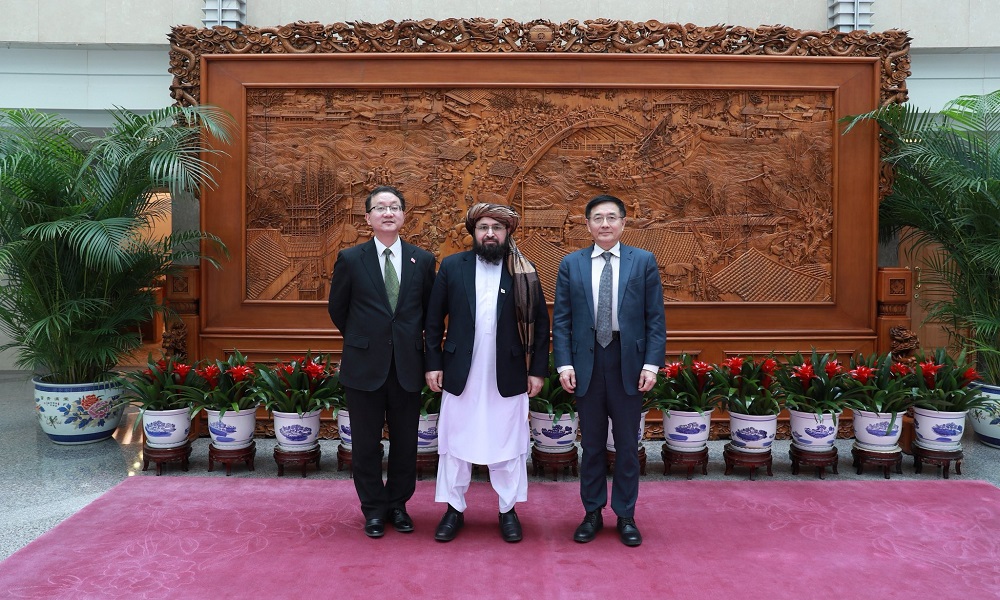
Bilal Karimi, the Ambassador of the Islamic Emirate in Beijing, met on Thursday with Liu Jinsong, head of the Asian Department of China’s Ministry of Foreign Affairs, and Yue Xiaoyong, China’s Special Representative for Afghanistan. The officials discussed political, economic, and commercial relations between the two countries, the activation of the Wakhan corridor, consular affairs, and other related issues.
According to a statement from the Embassy of Afghanistan in China, Karimi praised China’s positive stance toward Afghanistan and considered cooperation between the two countries necessary.
The statement added that Liu and Yue, while respecting Afghanistan’s independence, territorial integrity, and sovereignty, also emphasized the continuation of cooperation.
-

 Sport4 days ago
Sport4 days agoAFC Futsal Asian Cup 2026: Final eight confirmed
-

 Sport4 days ago
Sport4 days agoAfghanistan in new kit for T20 World Cup warm-up against Scotland
-

 Sport5 days ago
Sport5 days agoIran see off spirited Afghanistan to finish top of Group D
-

 Sport3 days ago
Sport3 days agoJapan trumps Afghanistan 6-0 in AFC Futsal Asian Cup quarter-final
-

 Sport2 days ago
Sport2 days agoHosts and heavyweights advance as AFC Futsal Asian Cup reaches semifinals
-

 International Sports4 days ago
International Sports4 days agoPakistan to boycott T20 World Cup group match against India
-
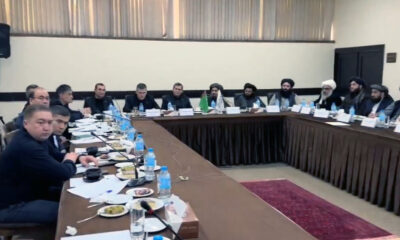
 Latest News5 days ago
Latest News5 days agoAfghanistan, Turkmenistan discuss TAPI, rail and power projects in Herat meeting
-

 Sport4 days ago
Sport4 days agoAfghanistan crush Scotland in ICC T20 World Cup warm-up






